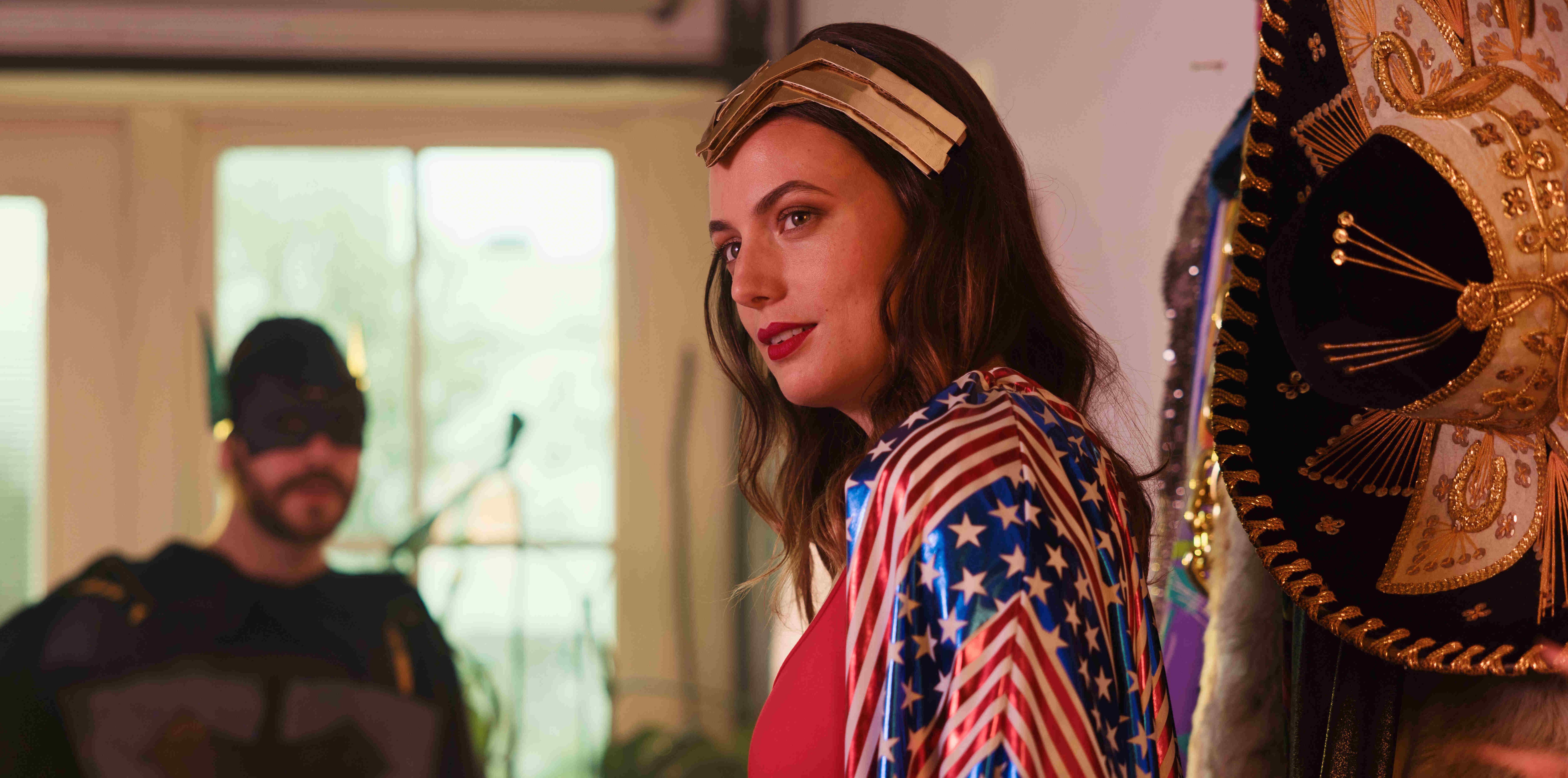Directed by Joosje Duk, Netflix’s Dutch film ‘Happy Ending’ revolves around Luna and Mink, who are celebrating the one-year anniversary of their relationship. Luna has been sharing her life with Mink without telling him that he is not satisfying her sexually. After faking orgasms for a year, Luna decides to add spice to her relationship with Mink by having a threesome with Eve. When Eve makes Luna have an orgasm, the dynamics between the latter’s togetherness with Mink changes. The romantic comedy explores the nuances of contemporary human relationships realistically, making it rooted in reality despite not being based on a true story!
From Difficult Conversations to Difficult Decisions
Luna and Mink’s tale is fictional, just like the characters. Joosje Duk, who wrote and directed the film, conceived the same to initiate an uncomfortable but useful conversation regarding sex. In the film, Luna and Mink are a couple who don’t ask questions while having sex. Mink never tries to find out what his partner likes and dislikes while sharing intimacy, which leads the latter to disappointed sexual encounters. Luna, on the other hand, never summon up the courage to talk about her needs with Mink. She chooses disappointment and dissatisfaction over a difficult conversation with her partner, only to confront the consequences of the same as their relationship grows.

Duk’s film emphasizes the need for having such difficult conversations. The romantic comedy explores how the communication gap between partners can lead them to emotionally devastating predicaments, which can leave them in pain and distress. In Luna and Mink’s case, the bond they have been nurturing is affected severely, making them question their future together. Despite being fictional, the movie is deeply rooted in reality because it addresses this intricate communication gap, which is present in relationships beyond cultural or national borders. Duk not only addresses this relevant concern through her film but also hopes that her creation will inspire couples to be aware of it and have a conversation about the same.
Duk’s movie prominently revolves around female pleasure. The romantic drama explores the intricacies of the same in a male-centric world, where the satisfaction of men tends to take precedence over women’s. Despite being aware of her needs and wants, Luna fails to address them vocally in front of Mink to avoid hurting the person she loves the most and least wants to hurt. Luna’s decision to sacrifice her pleasure and settle with a vibrator can be a relatable decision/experience for many women around the world. When she finally voices them out, she also ends up suffering from the repercussions of the same.

Duk wanted to make sure that Mink isn’t an antagonistic figure in Luna’s tale. In the film, Mink is not a narcissistic being who doesn’t care about his partner’s satisfaction. The writer-director drew inspiration from reality to characterize the young man. In an interview, Duk said that she believes men in heterosexual relationships want their partners to have as much “fun” in bed as they have. Mink isn’t any different. Rather than not caring about Luna’s satisfaction, he immerses himself in pain because he is not able to fulfill the former’s needs.
Although ‘Happy Ending’ is a romantic comedy, Duk wanted her film to be more authentic and “sex-realistic” than a typical rom-com. This authenticity is also present in the way the film explores Luna and Mink’s relationship, which makes it relatable and rooted in reality. Even though the movie is fictional, it focuses on communication between partners, an important part of our reality, while making the viewers aware of its significance.
Read More: Where is Netflix’s Happy Ending Filmed?


You must be logged in to post a comment.